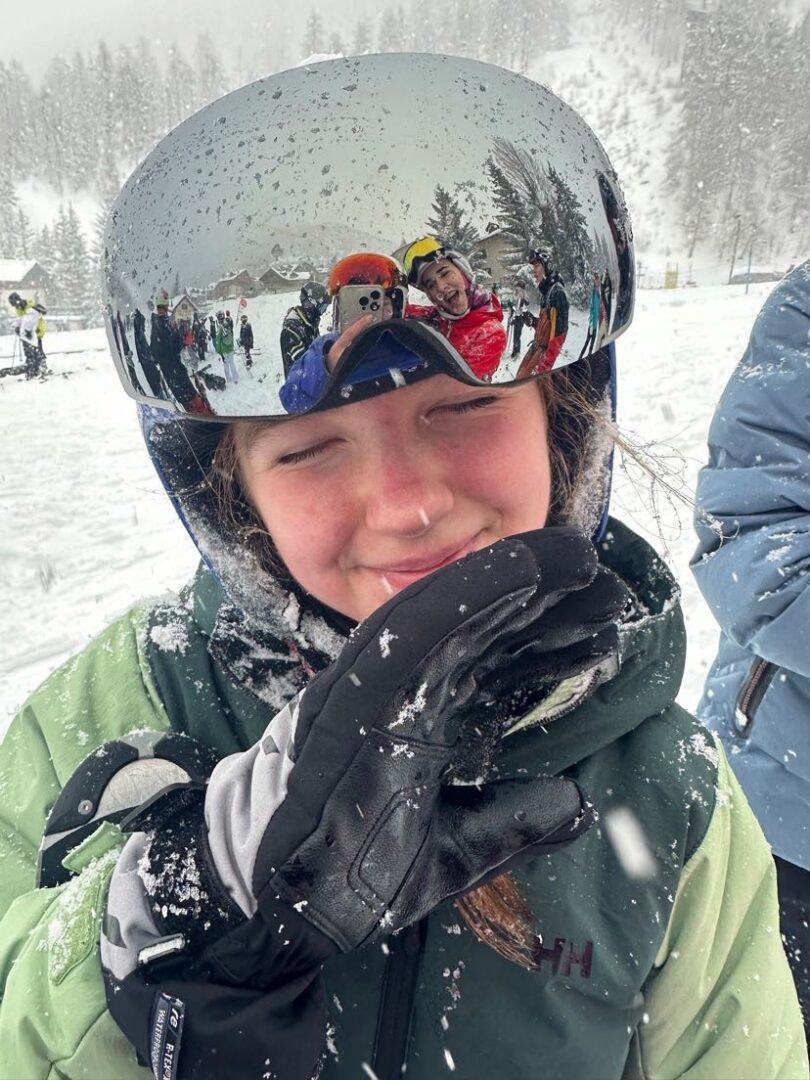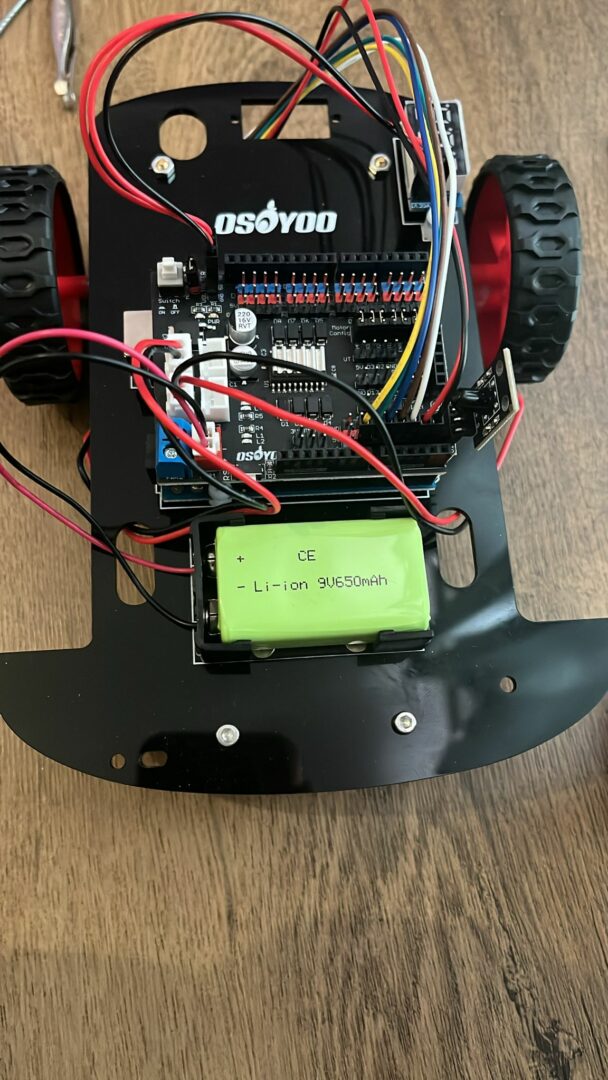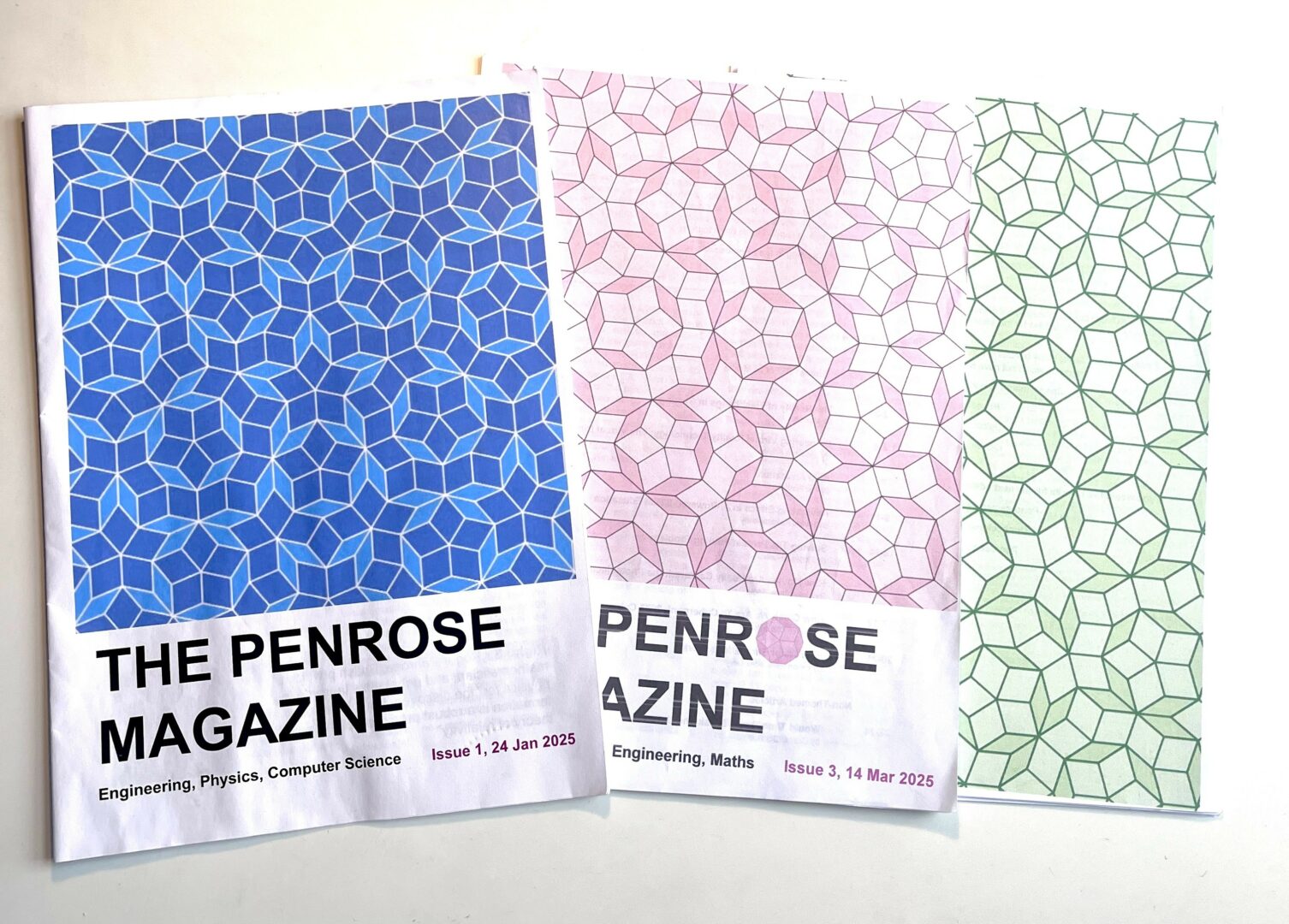We were lucky to catch up with Eleanore Shiner, Rosalia Bialek, and Fatima Patel recently and have shared our conversation below.
Eleanore, Rosalia, Fatima, so great to have you with us and we want to jump right into a really important question. In recent years, it’s become so clear that we’re living through a time where so many folks are lacking self-confidence and self-esteem. So, we’d love to hear about your journey and how you developed your self-confidence and self-esteem.
Eleanore: I have always been quite nervous in social environments, but when I founded Penrose Magazine I found that since I was genuinely passionate about the project, it was much easier to feel confident in my decisions. The leadership experience this has provided me has allowed me to gain confidence overall in my day-to-day life, from taking part in more out of school programs to attending networking events. Working with a team on a project you genuinely care about makes it easier to share ideas you might think are silly in some ways. I’ve been able to learn that people genuinely aren’t judging you; they’re listening and supporting you.
Rosalia: For me, the main way that I was able to build my confidence was taking opportunities that I wouldn’t generally choose to do, but what I thought I would still be able to enjoy doing. An example of this would be joining the Penrose Magazine team. I have to put myself in places where I would have previously been incredibly nervous, for example, contacting other businesses, writing articles as a whole, and also pitching ideas regarding the magazine.
Fatima: Growing up my parents were always very talkative and very social. I think as a result of that I became very social too and that helped me develop my confidence more. I think another thing that really helps my confidence in high pressure/high anxiety situations is just remembering everyone else is experiencing the same thing as me for example the first day of school everyone’s nervous everyone’s hoping to meet new people, so why not just go for it? I think Penrose also helped a lot in confidence in my academic abilities because when I actually applied myself and tried to write an essay I realised I was much smarter than I thought and that really helped my academic confidence and made me realise my potential. My confidence is what helped my self-esteem as it made me not care, it made understand that I had parts of me that were amazing and parts that are not so great but that doesn’t make me any less than anyone else, because everyone has negative parts to them and positive and you could just dwell on the negative but what’s the point in that? When you can just focus on the positive parts.

Thanks, so before we move on maybe you can share a bit more about yourself?
Eleanore: As the founder of Penrose Magazine, a STEM magazine for students aged 14-22, a very important goal of mine is to help STEM passionate student improve their writing skills no matter of background or education. Many younger STEM students often disregard the need for writing skills, however these are crucial for writing papers, grants, and more once their begin their careers. To help with this, our team provides extensive feedback and reasoning to each writer in hopes to teach them skills they may not learn otherwise.
Another goal I want to achieve through this magazine is to inspire and support other women in STEM. I have often found that there have been significantly less women then men taking part in my STEM subjects, especially prevalent in my current computer science class where I am the only girl. Though our magazine isn’t solely open to female writers, we hope to increase confidence in young women who are interested in STEM topics. One way I have tried to do this is through writing about a woman who has contributed to computer science in each issue we have released. So far I have written about Fei Fei Li, Radia Perlman, Donna Cox, Carolina Cruz-Neira, and Frances Allen, all of whom have made significant progress in their respective fields. I hope to continue to raise awareness of the work of inspirational women in the future.
Rosalia: I mainly write STEM articles for the Penrose Magazine, but, recently, I have tried to reach out to different companies and students as a means of advertising. We have available ambassador positions that we would really like to fill, and are currently collaborating with many other magazines which is quite exciting.
Fatima: I’m currently an A Level student so my journey is only just starting. I’m studying Maths, Physics and Computer science with hopes to study Electrical and Electronic engineering at University. Besides from investing my time in academics I’ve also been doing some extra-curricular such as being an Ambassador for Penrose magazine, where I get to write articles on topics that interest me depending on a theme, and edit other people’s articles.
In my free time I also use an Arduino which is essentially a mini computer (a microprocessor), I have other electrical components such as a servo, a breadboard and a sensor. I use those components to make different projects such as my latest completed project which was making a cardboard butterfly flap using gears, cogs, servos and a micro bit. But most recently I’ve been working on a robot that is still a work in process but is able to do function like move forward move backwards, since it came within a kit the main focus has been the programming aspect of it, as electrical engineering courses contain a lot of programming.
Outside of my own personal projects I’ve also done a few programs such as He+ which is ran by Cambridge University, I also did Leeds Futures where I got to attend in person and work with some electrical circuits as well as explore material sciences. This summer I attended the summer trust for Sheffield where I got to spend a couple of days in Sheffield meeting academics and doing activities based on different types of engineerings. Very recently I also took part in work experience for Johnson and Johnson in Leeds (Provided by InStemUk), where I got to work with a 3D printer and CAD which is something I learnt for the first time and I got to test my own product

Looking back, what do you think were the three qualities, skills, or areas of knowledge that were most impactful in your journey? What advice do you have for folks who are early in their journey in terms of how they can best develop or improve on these?
Eleanore: I think perseverance, teamwork, and passion were the main skills I needed when I created Penrose. I had developed these skills previously during competitive programming competitions and projects, so I felt relatively prepared when I founded the magazine. Perseverance is the skill you need to actually accomplish your goals. There is never a guarantee you will hear back from a sponsor or a potential writer, but if you continue to put effort into what you’re putting out, people will want to be a part of it. Teamwork, on the other hand has been more of a struggle since starting this magazine. Our previous co founder (who has since left) would leave me to edit all the articles, format each issue, and contribute articles, whilst taking all the credit. This becomes tense and stressful so I am very proud of where we have got to as a magazine where we have so many ambassadors interested in getting involved and putting in the effort. The most important quality to me is having passion. If you aren’t passionate about the project you are working on, it’s still possible to create high quality work, but how would that benefit you? I believe that what you put into a project is what you get out of it. You’re going to feel more happy with a project you were proud to work on then one you are relieved has finally finished.
Rosalia: Seeing as the Penrose is a STEM magazine that required lots of independent study, the qualities and skills that were most impactful on my journey were researching and fact-checking the information; assimilating knowledge from different sources into one cohesive article; and a necessary quality would be resilience as it takes time and effort to write, edit, and advertise an article or issue. Trust and belief in yourself helps to keep yourself on track. Some advice that I would give is just to try things that you might not be sure about. I wasn’t entirely sure about whether or not I should write for a magazine, but I decided it’s better to figure out what I would enjoy rather than regretting not doing it in the future.
Fatima: Since I am at the beginning of my journey a lot of the advice I have to give is what I’ve learnt from those older/more experienced than me. If I were to pick 3 qualities it would probably be Hard-work, Repetition and Curiosity.
Hard-work I think is very important especially in A-Levels, I personally believe in you reap what you sew, all-thought natural intelligence does play a part in academics hard-work is very rewarding and is what can set you apart from other students.
The next one I picked is repetition, it’s one thing to get a little motivation and study 3 hours on a school evening but it’s that continuity that really allows you to get those higher grades or whatever out come you want. Dedication is important not just in academic aspects but also for being dedicated to Penrose and ensuring I meet those for essays as well as personal projects.
My last quality is probably curiosity. Wanting to know more is important. I was always that person in my class with my hand up asking 5 million questions but that really helped me in class cause it meant I didn’t struggle and miss out. Curiosity also means that you’re able to learn more about your interests it’s what helped me decide that engineering is for me and that I specifically want to do Electrical and electronic engineering.
Penrose helped me a lot in terms of the curiosity aspect because it allowed me to go in depth and research topics that I was interested in.
One of our goals is to help like-minded folks with similar goals connect and so before we go we want to ask if you are looking to partner or collab with others – and if so, what would make the ideal collaborator or partner?
Eleanore: we are currently looking for passionate individuals from ages 14 to 22 with a curiosity for STEM to join our initiative. With this magazine we wanted to create a unique environment where students can complete tasks that interest them. Each experience has varied between our ambassadors, with some writing more articles, some eager to edit, and some even gaining skills through outreach.
Rosalia: Yes, we are looking for someone to collaborate with. We are open to collaborate with magazines or companies that would be able to publish researched works (like articles), and ones that follow and agree with our goals as an organisation. We plan on aiding students in finding their passion within STEM, and we are especially looking towards helping women in STEM get the recognition that they deserve.
Fatima: I would love to collaborate on projects with others as it’ll provide me with the experience of being able to work well with others. If I were to collaborate someone I would want them to be interested in stem more specifically engineering as those are the interests I share and what my projects are mainly based on. If you would like to contact me my email is [email protected].
Contact Info:
- Website: https://penrosemagazine.org/index.html
- Instagram: https://www.instagram.com/penrosemagazine/
- Facebook: none
- Linkedin: I currently dont have access but it is under penrose magazine
- Twitter: none
- Youtube: none
- Yelp: none
- Soundcloud: none
- Other: tiktok: https://www.tiktok.com/@penrosemagazine?lang=en

so if you or someone you know deserves recognition please let us know here.




